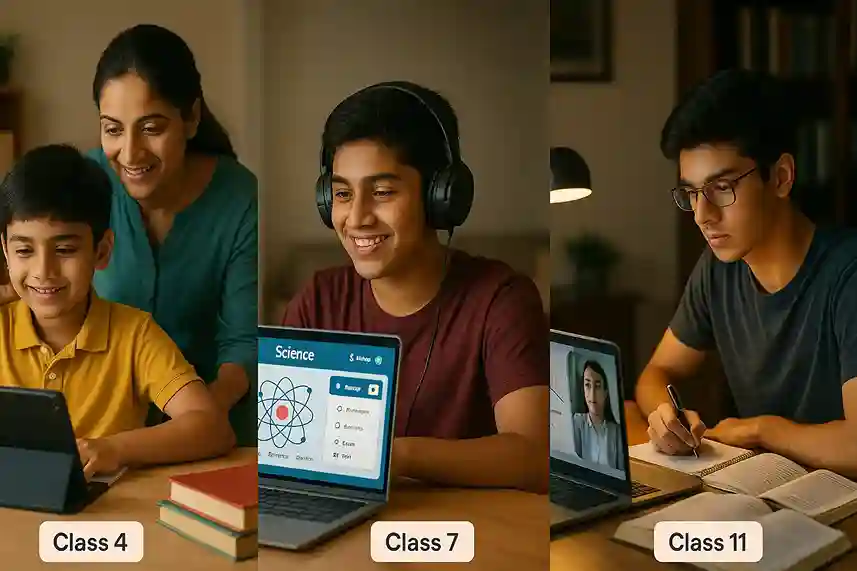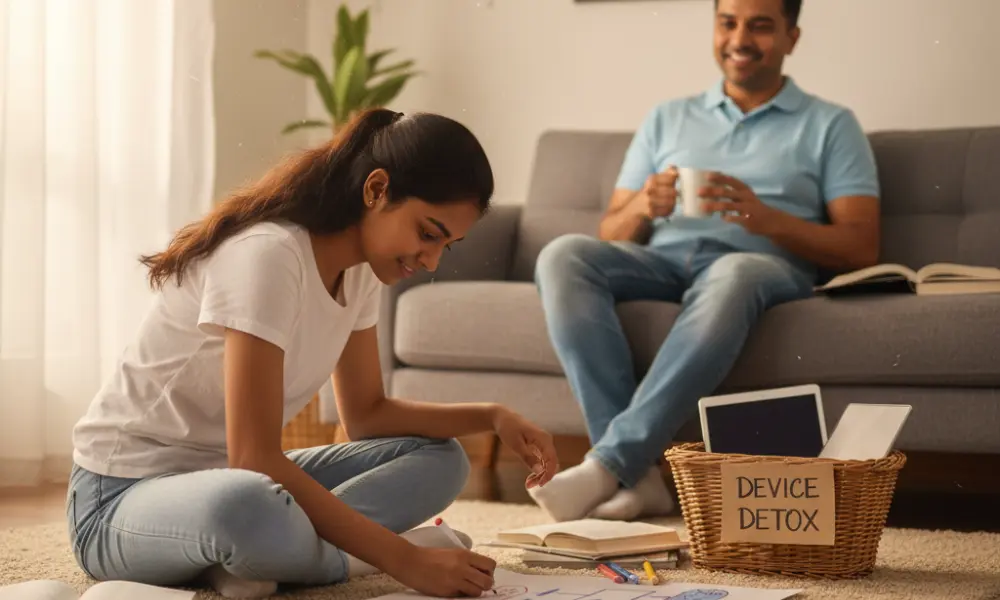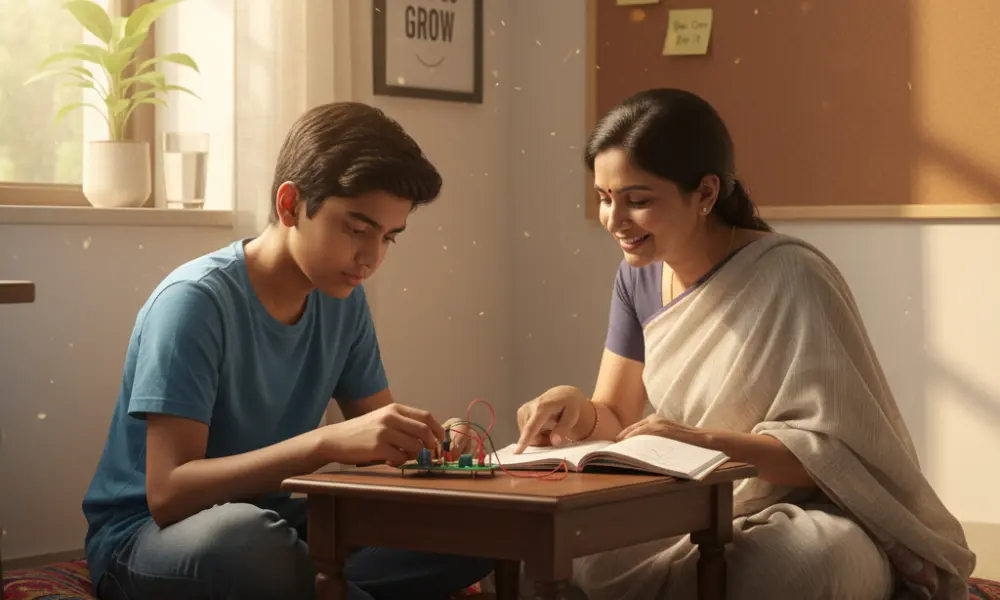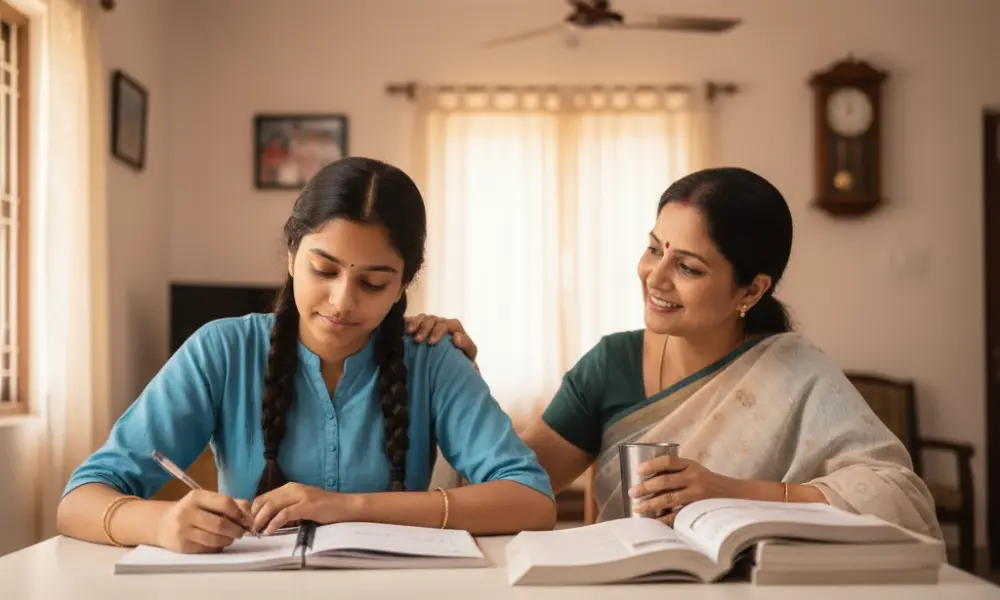What’s the Right Age to Start Online Tutoring? Experts Weigh In
Experts share insights on the best time for children to begin online tutoring
Parents often wonder when to start online tutoring for their children. This blog explores expert perspectives, developmental factors, and practical guidance to help families make an informed decision.

Online tutoring has rapidly become a mainstream learning option for CBSE and NCERT students in India. Parents now face an important question: at what age should their child begin structured online learning? The answer depends on multiple factors, from cognitive readiness to technology familiarity. This article compiles expert insights and practical case studies to help families navigate this decision.
Factors influencing the right age for tutoring
The right age for starting online tutoring is not universal. It varies depending on a child’s learning style, academic needs, and maturity level. Experts often recommend looking at three main factors: the child’s ability to focus for extended periods, their comfort with technology, and the specific academic gaps parents want to address. A Class 4 student struggling in math may benefit earlier, while another child might only require tutoring closer to Class 9 or 10 board preparation.
Benefits of starting early
Starting online tutoring in the middle school years (Classes 5 to 7) can establish strong study habits and introduce children to interactive learning tools. At this stage, children are more adaptable to digital platforms, and early exposure can build confidence. Parents often notice improved homework completion, enhanced understanding of NCERT concepts, and a gradual reduction in dependency on rote learning.
Risks of starting too late
Waiting until Class 10 or 12 to begin online tutoring can put pressure on students who are already coping with high-stakes board exams. Experts warn that late starters may take time to adjust to online learning formats, leaving little room for practice before critical exams. Additionally, they miss out on years of cumulative skill-building that consistent tutoring could have provided.
Psychological readiness of students
Beyond academics, psychological readiness plays a vital role. Children must be emotionally prepared to learn in a virtual environment without constant in-person supervision. According to child psychologists, most students achieve the necessary self-regulation between ages 11 and 13, though younger children with strong parental involvement can also adapt well. Readiness often manifests in the ability to follow instructions independently and maintain attention during 30 to 45-minute sessions.
Technology familiarity by age group
Digital comfort varies by age group. Primary students (Classes 1 to 4) may struggle with device handling and require parental support. Middle schoolers (Classes 5 to 8) are typically comfortable with apps, interactive quizzes, and video lessons, making this an ideal entry point. By high school (Classes 9 to 12), students are not only tech-savvy but also capable of using digital platforms for deeper learning, revision, and competitive exam preparation.
Case studies from different classes
Class 5
Riya, a Class 5 student, began online math tutoring to strengthen her basics. Within six months, she showed greater enthusiasm for problem-solving, thanks to gamified lessons.
Class 8
Arjun joined science tutoring in Class 8. His parents observed that early exposure to NCERT-aligned online lessons made his Class 10 board preparation less stressful.
Class 11
Meera started online tutoring only in Class 11 for physics and chemistry. While it improved her board results, she admitted she wished she had begun earlier to build a stronger foundation.
Expert advice for parents
Education experts suggest that parents should not focus solely on age but on readiness. Regular discussions with teachers, trial classes with online tutors, and monitoring a child’s workload can help determine the right time. Parents should also avoid overloading children with multiple online classes, as balance is essential for long-term learning success.
“There is no one-size-fits-all age. The right time is when the child shows readiness for structured digital learning without losing their natural curiosity.” — Education Psychologist
How to choose the right platform
Choosing the right online tutoring platform is as important as deciding when to begin. Parents should look for platforms that align with CBSE and NCERT syllabi, offer personalized progress tracking, and integrate gamification to keep students motivated. Platforms like Edzy use AI-powered tools, flashcards, and quizzes to ensure interactive learning while also reducing exam anxiety through streaks and leaderboards.
A reliable platform should provide trial classes, transparent teaching methodologies, and parental progress reports. Additionally, it should be flexible enough to adapt to the student’s pace and changing academic needs.
Final thoughts
The right age to start online tutoring depends on a combination of academic, emotional, and technological readiness. While middle school often proves to be the sweet spot, every child’s journey is unique. By carefully evaluating their child’s needs and choosing the right platform, parents can turn online tutoring into a powerful tool for growth and success.
Suggested blogs

Screen Time Management for Students: A Parent’s Step-by-Step Guide
A comprehensive guide for parents to manage their children's screen time effectively.

How Parents Can Build a Growth Mindset in Their Children
Empower your child with a growth mindset for lifelong learning.

Peer Pressure vs Healthy Competition – Helping Your Child Stay Motivated
How to differentiate peer pressure from healthy competition and guide your child toward positive motivation

The Role of Parents in Building Exam Confidence: Do’s and Don’ts
Practical do’s and don’ts for parents to boost their child’s exam confidence
